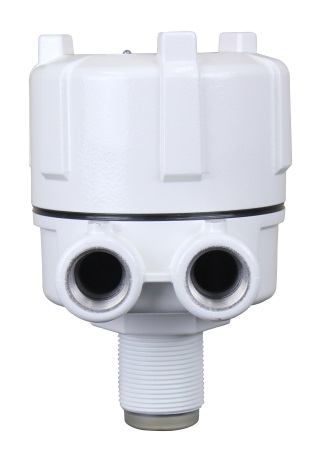BinMaster introduces the Flow Detect 2000, a reliable, non-intrusive instrument for the detection of solids flow or no flow in various applications in the material handling industry. It prevents downtime caused by blockage, conveyors running empty, no material flow to-and-from a process, or loose slide gates that can cause production loss and equipment failure.

This new low-cost, non-intrusive, microwave-based flow/no flow instrument is used to detect flow conditions of solids and powders in gravity chutes, feeders, pipelines, conveyor belts, or bucket elevators. The Flow Detect 2000 contains the sensing element, power and output connections, and user adjustment controls in a single NEMA 4X enclosure.
The sensor is easy to install through a 1-/14” NPT opening. It is completely non-intrusive and does not come into contact with the flow stream. This eliminates the risk of wear and assures long life and reliability. It is appropriate for solids, granules, pellets, meals and powdered materials and is suitable for most any industry including feed, grain, milling, food, cement, mining, power and plastics. An important use is to prevent cross contamination of ingredients by ensuring flow has stopped before a new material is introduced into the flow stream.
It uses microwave Doppler technology for highly sensitive motion detection. The high frequency, low power microwaves are able to pass through non-metallic materials. This enables the Flow Detect 2000 to “see through” a plastic pipe, a glass process seal or the wall of a wooden chute to detect the material inside. A switchable filter incorporated into the signal path of the Doppler output reduces the effect of vibration. This filter also ensures the detection of moderate and fast-flowing materials.
The Flow Detect 2000 provides a single analog relay output to communicate flow or no flow status to a PLC. Both normally open (NO) and normally closed (NC) contacts are available. Indicators and controls for the initial calibration and set up are easily accessible by simply unscrewing the lid of the device. LED indicator lights for power, flow/no flow and fault conditions show the status of the device. Controls for adjusting sensitivity and the output delays are used during the initial setup.`